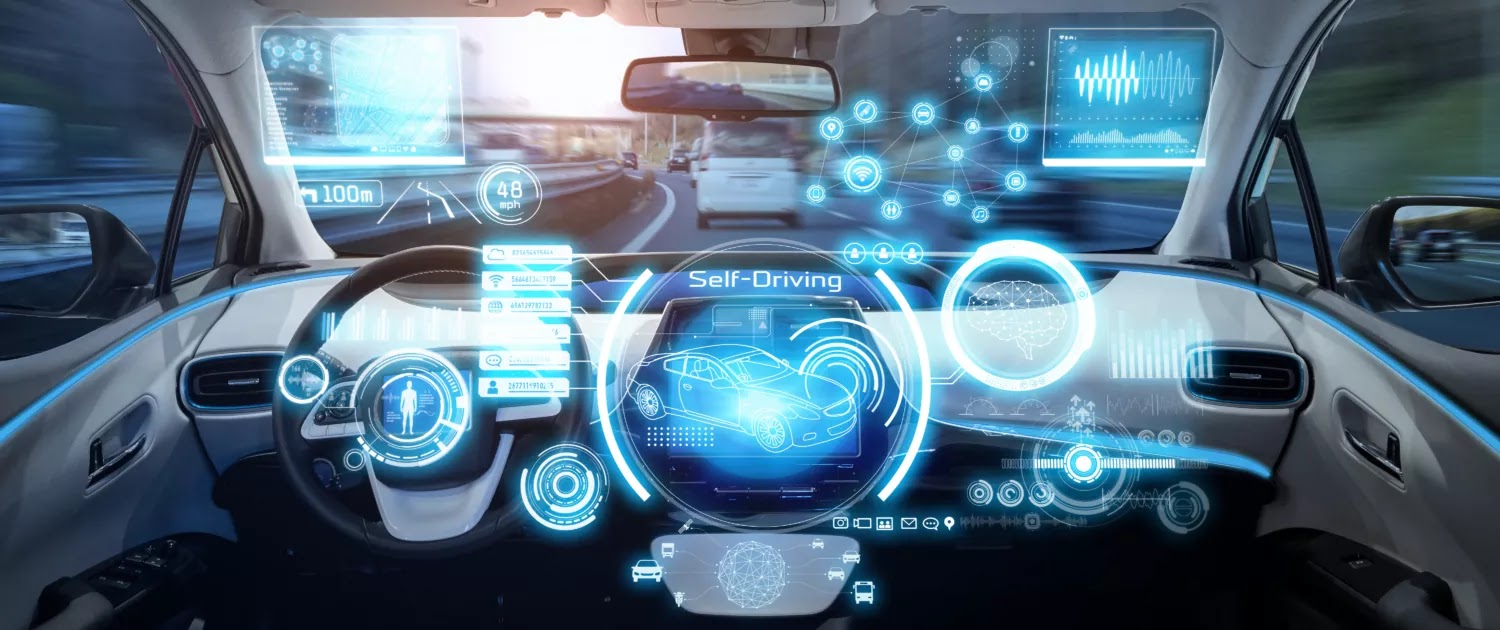Future scope of Automated cars
The future of automated cars looks promising, with many potential benefits for individuals, society, and the environment. Here are some of the potential future scopes of automated cars:
Improved safety:
Automated cars have the potential to significantly reduce the number of traffic
accidents, injuries, and fatalities on the road. This is because the majority
of accidents are caused by human error, such as distracted driving, speeding,
or driving under the influence of drugs or alcohol. Automated cars can
eliminate these risks by relying on advanced sensors and software to navigate
the vehicle.
Increased efficiency:
Automated cars could also lead to increased efficiency on the road, as they
would be able to communicate with each other and optimize their routes to
reduce congestion and travel time.
Greater accessibility:
Automated cars could provide greater mobility for people who are unable to
drive due to age, disability, or other factors. This would allow more people to
access employment, education, healthcare, and other services.
Reduced environmental impact:
Automated cars could also help reduce the environmental impact of
transportation by reducing congestion, improving fuel efficiency, and
encouraging the use of electric or hybrid vehicles.
New business opportunities:
The emergence of automated cars could also lead to new business opportunities
in areas such as ride-sharing, delivery services, and logistics.
The future of automated cars looks promising, with the
potential to revolutionize transportation and improve the quality of life for
individuals and society as a whole. However, there are also challenges to be
addressed, such as ensuring the safety and security of the technology,
addressing ethical and legal issues, and ensuring equitable access to the
benefits of automated cars. Checkout the FAQ for Automated cars here.
Business Opportunities with Automated Cars
Automated cars have the potential to create new
business opportunities and revenue streams in several areas. Here are some of
the ways in which automated cars could generate profits for businesses:
Ride-sharing services:
Automated cars could enable the creation of new ride-sharing services, which
could be more efficient and cost-effective than traditional taxi or
ride-hailing services. This could create opportunities for companies to enter
the ride-sharing market and generate revenue through fees or commissions.
Delivery services:
Automated cars could also be used for delivery services, such as transporting
goods from warehouses to stores or delivering groceries or other items directly
to consumers. This could create opportunities for logistics companies and
retailers to reduce delivery times and costs and improve the customer
experience.
Maintenance and repair services: Automated cars will require regular maintenance and repair, creating opportunities for businesses that specialize in these services. This could include companies that provide software updates, sensor calibration, or mechanical repairs for automated vehicles.
Data and analytics: Automated
cars will generate vast amounts of data about driving patterns, traffic flow,
and other factors. This data could be valuable to companies in a range of
industries, including insurance, urban planning, and transportation management.
Advertising and entertainment:
As passengers will be freed from the task of driving, they will have more time
to engage with media and advertising content. This could create opportunities
for companies to develop new forms of entertainment or advertising that are
specifically designed for the in-car environment.
Automated cars have the potential to create new
revenue streams and business opportunities for companies in a range of
industries, from transportation to entertainment to data analytics. However,
the extent of these opportunities will depend on factors such as the speed of
adoption of the technology, the regulatory environment, and consumer
preferences.
Here are some statistics on the usage of automated cars in recent years from different market research firms :
- As of 2021, there were an estimated 8.5 million autonomous and semi-autonomous vehicles on the road worldwide. (Statista)
- In 2020, the global market for autonomous cars was valued at $24.1 billion. (Grand View Research)
- The autonomous taxi market is expected to grow from $2.5 billion in 2020 to $65.3 billion in 2030, at a compound annual growth rate (CAGR) of 41.8%. (Research and Markets)
- In a survey conducted by J.D. Power in 2021, 46% of U.S. drivers said they would be interested in owning a fully self-driving car in the future.
- Waymo, a subsidiary of Alphabet, had driven over 20 million miles on public roads as of 2021, making it one of the most experienced players in the autonomous vehicle industry.
- The COVID-19 pandemic has accelerated the adoption of autonomous vehicles for delivery services, with companies such as Amazon, FedEx, and UPS testing autonomous delivery vehicles in select markets.




Comments
Post a Comment